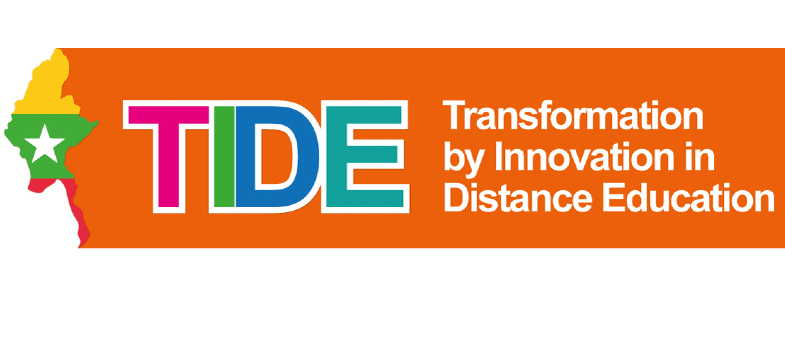Find out more about Using Story-Writing Techniques in Teaching 2nd Year Chemistry Students...
Context:
In the Yangon University of Distance Education, the Second Year students specializing in Chemistry have to take an environmental module on water chemistry entitled 'Module 2109: Water Chemistry'. Although the subject is very useful and interesting, the Distance University Students did not engage themselves actively in learning it, partly because most students are outside workers who come to school only in tutorial sessions and partly because teaching at school has been too exam-oriented and consequently too theoretical. To change the deeply-rooted mindsets of the students and 'boring' seasoned teaching styles, the story writing techniques were first introduced to environmental classrooms in this semester with the hope that environmental learning would be more engaging and more practical.
Activity Aims
I wanted my students to:
- understand the extent of environmental impacts on different inhabitants due to the salted water floods in the delta area
- understand the different roles that members of the human society play in facing currently challenging environmental problems
The activity
The class (in our case, consisting of 52 students) was first told a made-up story in which a flood eroded a delta village and made all the people homeless. Now, the students must take the role of villagers who wanted to rebuild a new village. They were asked to submit a group assignment covering the following for each group:
- the problems the villagers were facing
- the negative changes the flood had made to the different lives of the villagers, and who was most seriously affected
- the negative impacts the floods had on the soil and environment of the village
- the factors they would consider in rebuilding a new village with better conditions for them to be able to face similar environmental issues (bearing in mind the negative conditions that helped the flood destroy the village more severely than expected)
The class was divided into five groups:
- of people from the agricultural sector: farmers, gardeners
- of people from the home industries
- of construction workers
- of people from fishery and livestock breeding fields
- of professionals including teachers, medical doctors and nurses, and other government servants
The assignment was to be completed in two teaching weeks. The different groups must submit a report to their teacher covering all the questions mentioned above. The report must carry the different voices of the villagers who suffered from the impacts of the flood. The students could go to the library or conduct interviews with the villagers in the delta who had had similar experiences.
Feedback from students
At first, the students were reluctant to do the assignment because they had not done such an activity before, especially in group work. After some minutes of encouragement, they gained some confidence and were promised jokingly that the best group would be the headmen of the village as winner of our story-writing classroom.
Then, the students were regularly given some guidance in understanding the different roles of the delta dwellers. Most of the time, however, students spent their time in the school library during the assignment period; the librarian confided in me that she found this semester busiest during the last decade.
I gained feedback from students through informal conversations and also feedback forms. At the end of the assignment, students reported that they had come to realize how environmental impacts can greatly change vulnerable lives of the people. They felt that they could see beyond the books and they are now eager to look into the real outside world. After finished their assignments, they were more motivated. They reported particularly that they enjoyed the time spent researching in the library.
However, some felt uncomfortable using role-play to learn. Another reported problem was disappointment that some library resources were not up to date.
Strengths and weaknesses
The activity aroused the interest of the students in environmental studies, especially in the field of water chemistry. But it did more than that because they started to understand that not only floods but also other environmental impacts can affect our human life as well as our environment.
At the same time, the activity increased the students' thinking skills and imagination. Through writing such a report did they find their own voices and those of the 'people in trouble due to environmental changes'.
Notwithstanding these benefits, the activity lacked the chances to explore firsthand experiences in such a scenario and conduct interviews with local people in the delta. It is due partly to time-constraints we had for this semester at YUDE.
Acknowledgements
Special thanks go to the TIDE Programme which has been providing me with such a valuable insight into teaching environmental classrooms.
Key words: active learning; groupwork; role-play; flood management.
References
Department of Higher Education, Ministry of Education, Myanmar. (2018) Chemistry in Society and Water Chemistry (Module No. Chem-2014 & Chem-2019) Yangon: Yangon University of Distance Education.
Download this case study
